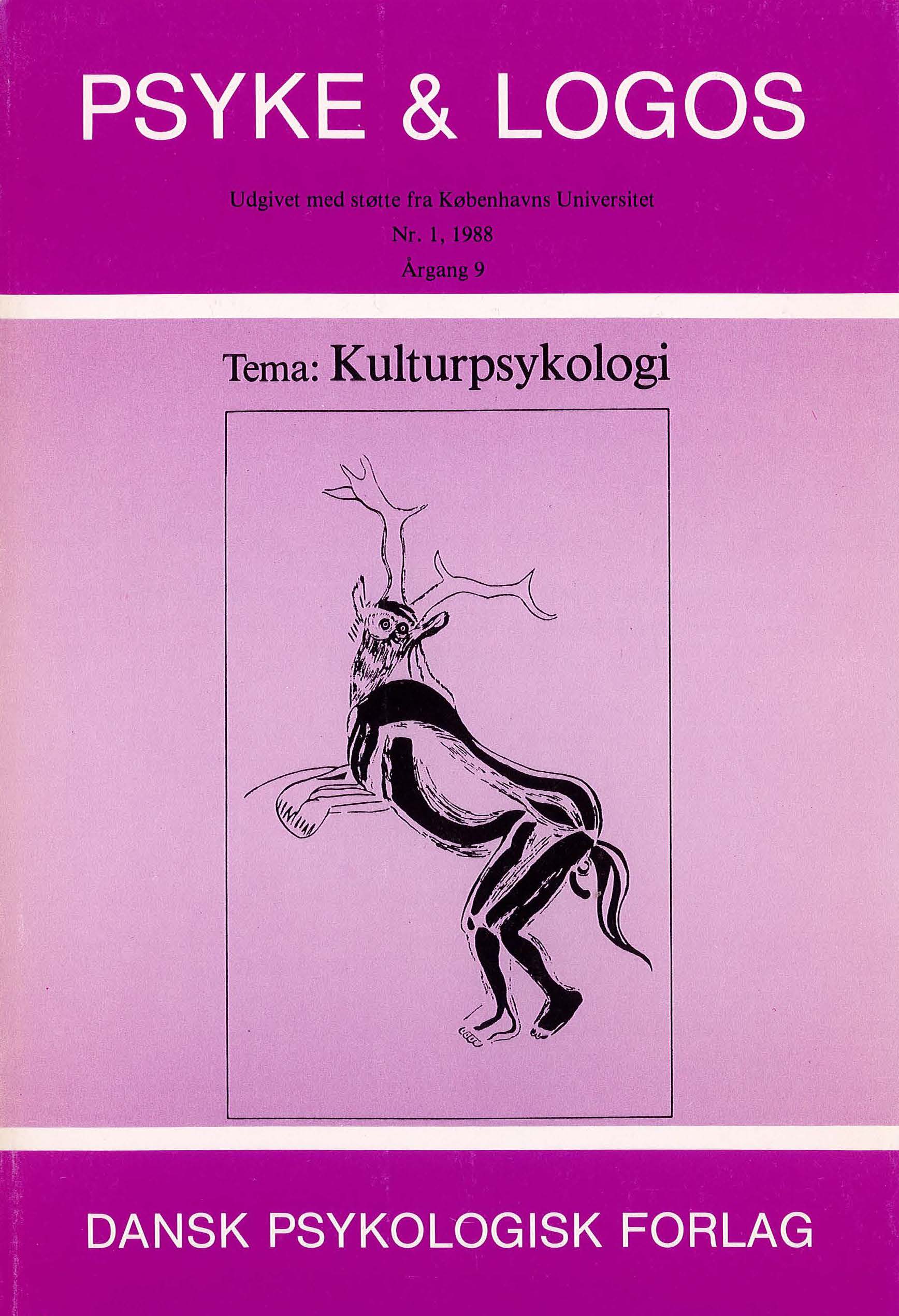Grammatical models and the self
DOI:
https://doi.org/10.7146/pl.v9i1.135961Abstract
The fact that cultures are differentiated as much by the languages with which they are associated as by any other social practice suggest that the study of psycholinguistics and sociolingustics are like to prove powerful entry ports to cross-culturel psychology. Cultures are known to differ on a number of psychological dimensions, such as the available repetoire of emotions. But the most important and the most elusive is surely differences in the sense of self. This is a matter of the way self-knowledge is organized around a logical subject. In this paper a generally Wittgenstein stance to language is coupled with an analysis of the forms
of reflective commentary to show how a space opens up for distinctive self-theories to enter into the psychology of a folk. Further research along these lines would tie in these phenomena to other culturel practices such as the assignment of responsibility. It is important to see these diffferences as located on grammar because it is only in grammar that a speaker finds that basic set of conventions within which there are no linguistic options. In so far as psychological structures are tied to grammar they are a fixed part of the culture.
Downloads
Published
How to Cite
Issue
Section
License
Ophavsret er tidsskriftets og forfatternes. Det er gældende praksis, at artikler publiceret i Psyke & Logos, som efterfølgende oversættes til andet sprog, af forfatteren frit kan publiceres i internationale tidsskrifter, dog således at det ved reference fremgår, at den oversatte artikel har et forlæg i en dansksproget version i Psyke & Logos. Artikler kan frit deles og linkes til på forsknings- og undervisningsnetværk (så som Blackboard). Link foretrækkes, fordi det giver oplysning om brug af tidsskriftets artikler.




